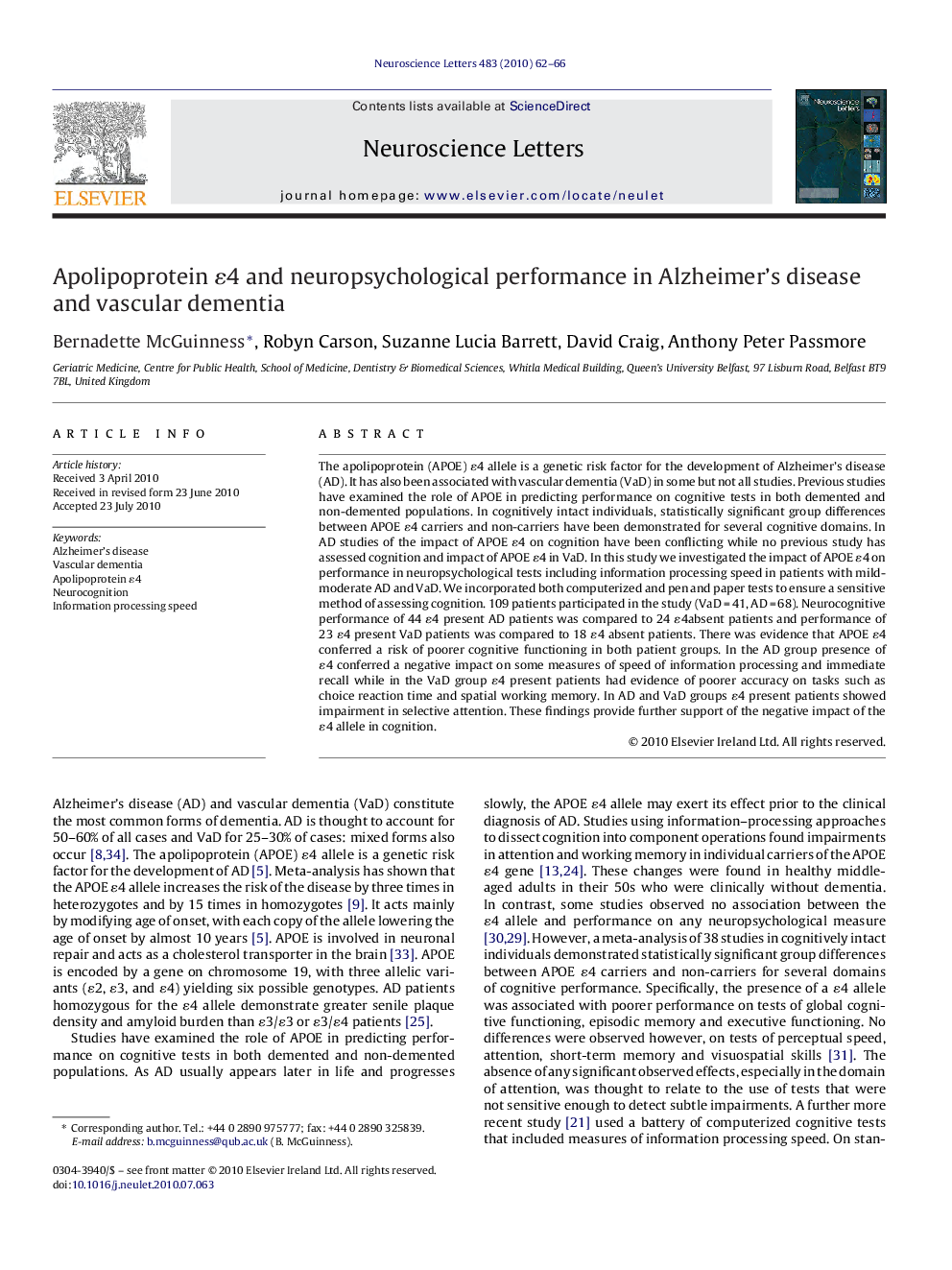| Article ID | Journal | Published Year | Pages | File Type |
|---|---|---|---|---|
| 4345907 | Neuroscience Letters | 2010 | 5 Pages |
Abstract
The apolipoprotein (APOE) É4 allele is a genetic risk factor for the development of Alzheimer's disease (AD). It has also been associated with vascular dementia (VaD) in some but not all studies. Previous studies have examined the role of APOE in predicting performance on cognitive tests in both demented and non-demented populations. In cognitively intact individuals, statistically significant group differences between APOE É4 carriers and non-carriers have been demonstrated for several cognitive domains. In AD studies of the impact of APOE É4 on cognition have been conflicting while no previous study has assessed cognition and impact of APOE É4 in VaD. In this study we investigated the impact of APOE É4 on performance in neuropsychological tests including information processing speed in patients with mild-moderate AD and VaD. We incorporated both computerized and pen and paper tests to ensure a sensitive method of assessing cognition. 109 patients participated in the study (VaDÂ =Â 41, ADÂ =Â 68). Neurocognitive performance of 44 É4 present AD patients was compared to 24 É4absent patients and performance of 23 É4 present VaD patients was compared to 18 É4 absent patients. There was evidence that APOE É4 conferred a risk of poorer cognitive functioning in both patient groups. In the AD group presence of É4 conferred a negative impact on some measures of speed of information processing and immediate recall while in the VaD group É4 present patients had evidence of poorer accuracy on tasks such as choice reaction time and spatial working memory. In AD and VaD groups É4 present patients showed impairment in selective attention. These findings provide further support of the negative impact of the É4 allele in cognition.
Related Topics
Life Sciences
Neuroscience
Neuroscience (General)
Authors
Bernadette McGuinness, Robyn Carson, Suzanne Lucia Barrett, David Craig, Anthony Peter Passmore,
